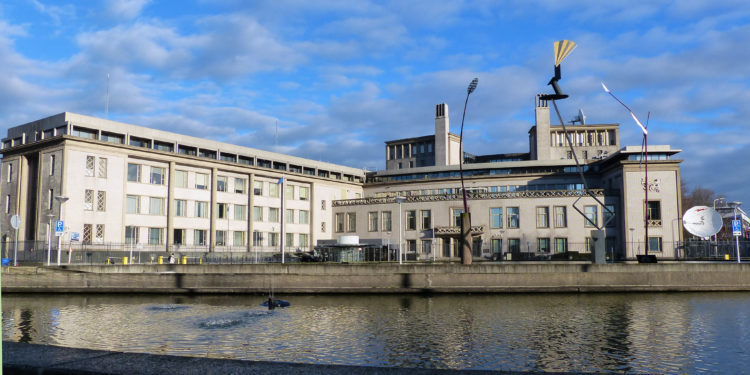By Thomas Verfuss in The Hague
‘Lessons learnt!’ was an important mantra when the Rome Statute was negotiated and, after its entry into force in 2002, started to be concretely implemented by the ‘advance team’ in The Hague: the actors looked at the experiences of the ad hoc tribunals of the United Nations for the former Yugoslavia and Rwanda, ICTY and ICTR.
In one respect, lessons seem not to have been learnt: contempt of court, or “offences against the administration of justice”, as the header of article 70 of the Rome Statute reads. At the ICTY, judges could ensure contempt was prosecuted by investigating and prosecuting it themselves. Or they could appoint an external “amicus curiae” to do the job, avoiding conflicts of interest or cumbersome extra work additional to their task in the main trial.
But at the ICC, article 70, as it is read and applied, allows only for the Office of the Prosecutor to investigate and prosecute criminal misconduct – even if the suspects are the OTP’s own staff members. The problem became apparent already in the case of Thomas Lubanga, the first ICC trial, with its first ever witness. That former child soldier revoked earlier testimony during trial and said that he had not told the truth earlier because he had been instructed so.
ICC observers immediately suspected some ‘intermediary’ – locals that the OTP hires to help with investigations because they know the local language and the local communities. In a poor country like the Democratic Republic of Congo (DRC), where the crimes charged in the Lubanga trial were committed, it can be very attractive to be an OTP intermediary because of the pay. If an intermediary was the culprit, one may wonder how much the OTP investigator working with that intermediary knew or should have known about his or her misconduct.
The judges ordered the OTP to investigate the matter. Some time later, the OTP reported that the investigations had not produced results that would amount to article 70 charges. In other systems, the judges could have appointed an external, independent “amicus curiae” investigator (and possible later prosecutor). Or they could have investigated the matter themselves.
During the Jean-Pierre Bemba trial (case about a former vice-president of the DRC, indicted for alleged war crimes by his militia in a neighbouring country, the Central African Republic) the suspicion arose during the trial that the defence team was manipulating witnesses and inciting false testimony. A pre-trial chamber judge authorised the OTP to ask the Dutch police to record all defence team’s internal telephone communications, thus also about strategies on how to win the case. Defence team members later stated that they noted during the cross examination of their witnesses in the courtroom by the OTP that the prosecutors had had access to their privileged internal communications.
It was the same OTP officials who tried to win the main war crimes case (which was ultimately lost on appeal, showing that the OTP had a weak case) that could profit from the eavesdropping on the defence.
It is honourable that a high-level OTP staff member decided at a given moment that the team had to be divided into two separate units working completely independently from each other. But that was an entirely voluntary decision, with no external checks and balances. The International Bar Association has noted that the current Article 70 framework relies heavily on the OTP’s adherence to impartiality and integrity, and lacks transparency in respect of how such cases are handled within the OTP. An external amicus team would have been a proper solution in the Bemba case.
At the UN’s International Criminal Tribunal for the Former Yugoslavia (ICTY), the first contemporaneous international criminal jurisdiction, the Rules of Procedure and Evidence provided:
Rule 77
Contempt of the Tribunal
[…]
(C) When
a Chamber has reason to believe that a person may be in contempt of the
Tribunal, it may:
(i) direct the Prosecutor to investigate the matter with a view to the
preparation and submission of an indictment for contempt;
(ii) where the Prosecutor, in the view of the Chamber, has a conflict of
interest with respect to the relevant conduct, direct the Registrar to appoint
an amicus curiae to investigate the matter and report back to the Chamber as to
whether there are sufficient grounds for instigating contempt proceedings; or
(iii) initiate proceedings itself.
The judges of an ICTY chamber could look at the circumstances of a case and
then choose the appropriate one of the three possibilities.
If there was no conflict of interest and the investigations required a thorough knowledge of the case, the investigation and possible prosecution of the case could be entrusted to the OTP. In case of a conflict of interest (suspects in OTP itself) or breach of confidentiality of privileged communication (in case of defence team suspects), judges could have an external amicus curiae hired as an investigator (which was done several times).
When the judges had first-hand knowledge of the facts, like in cases of misconduct in the courtroom, they could investigate and prosecute the matter themselves.
The ICC’s article 70 practice has caused lots of sense of injustice and bitterness with defence teams at the ICC in the past. Inserting the ICTY’s rule 77 into article 70 of the Rome Statute would be an immediate improvement of the system and contribute to justice seen to be done.
Read more International Bar Association report here
Example of art. 70 malfunctioning in ICC practice here







